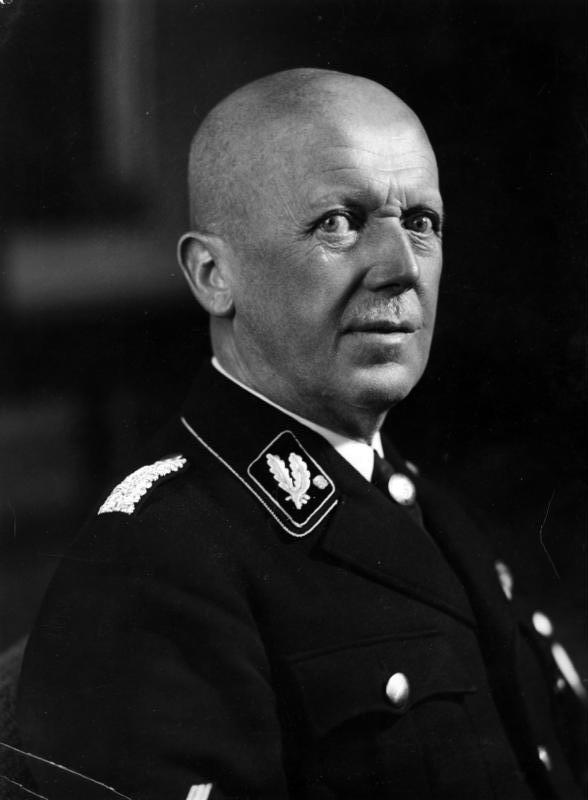LAMMËRS, OPERATION OF GOVERNMENT IN THE THIRD REICH
| Staatsf uehrung in Dritten Reich.] Part II. The Leader State.
[Der Fuehrerstaat.] Verwaltungsblatt, 59, 1938,
2, pp. 563-565, 585-589.
Out of this total basic concentration of power of authority in the person of the Fuehrer, however, no excessively strong and unnecessary centralization of administration in the hand of the Fuehrer results in the governmental administration. In my general elaborations on the basic concept of the Fuehrer state I have already pointed out that the subordinate leader's [Unterfuehrer] authority, directed downward, forbids interference with every individual order he may issue. This principle is manipulated by the Fuehrer in his government leadership in such a manner that for example the position of the Reich ministers is actually much more independent today than formerly, even though today the Reich ministers are subordinated to the Fuehrer's unlimited power of command in their entire official sphere, even in every individual measure and decision in the most trivial matters. Willingness to bear responsibility, ability to make decisions, aggressive energy, and real authority—these are the qualities which the Fuehrer demands primarily of his subordinate leaders [Unterfuehrer]. Therefore he allows them the greatest freedom in the execution of their affairs and in the manner in which they fulfill their tasks. Nothing is more foreign to him than narrow or faultfinding criticism.
# * * * * * *
By Divine Providence and the genius of Adolf Hitler the collapse of this (Austrian) dictatorship became the deliverance and salvation of the German Ostmark and the hour of birth of our glorious, beloved Greater German Reich.
* * * * * * *
Today the whole world knows that the "German National Socialist Revolution," which was a real revolution even though no blood flowed, had its beginning on January 30, 1933. For this German National Socialist revolution did not signify merely a change in government. It was rather a complete upheaval of philosophy [Weltanschauung], and beyond that a radical change in state and political thinking in general.
* * * * * * *
According to National Socialist conception the most basic differences in men are not accidental but determined by their blood.
786
Extracts from lectures on the governmental system under Hitler, including the "Fuehrer state," the revolution of 1933, and the importance of blood
Authors
Hans H. Lammers (Dr., Chief of Reich Chancellery)
Hans H. Lammers
German jurist, Nazi politician, and Head of the Reich Chancellery (1879-1962)

- Born: 1879-05-27 (Lubliniec)
- Died: 1962-01-04 (Düsseldorf)
- Country of citizenship: Germany
- Occupation: judge; jurist; lawyer; politician
- Member of political party: German National People's Party (until: 1932-01-01); Nazi Party
- Member of: Schutzstaffel
- Participant in: Ministries Trial (role: defendant); Nuremberg Medical Trial (role: affiant, witness)
- Significant person: Adolf Hitler (role: superior); Karl Brandt (role: colleague)
Date: 1938
Literal Title: Lammers: Staatsfuehrung im Dritten Reich
Total Pages: 1
Language of Text: English
Source of Text: Nazi conspiracy and aggression (Office of United States Chief of Counsel for Prosecution of Axis Criminality. Washington, D.C. : U.S. Government Printing Office, 1946.)
Evidence Code: PS-3863
HLSL Item No.: 452109
Trial Issue
Document Summary
PS-3863: Extracts from a series of lectures given by Lammers in the year 1938. basic principles of the FÜhrer state; Austria was a dictator state before the reunion; the revolution of 30 January 1933 was a true revolution